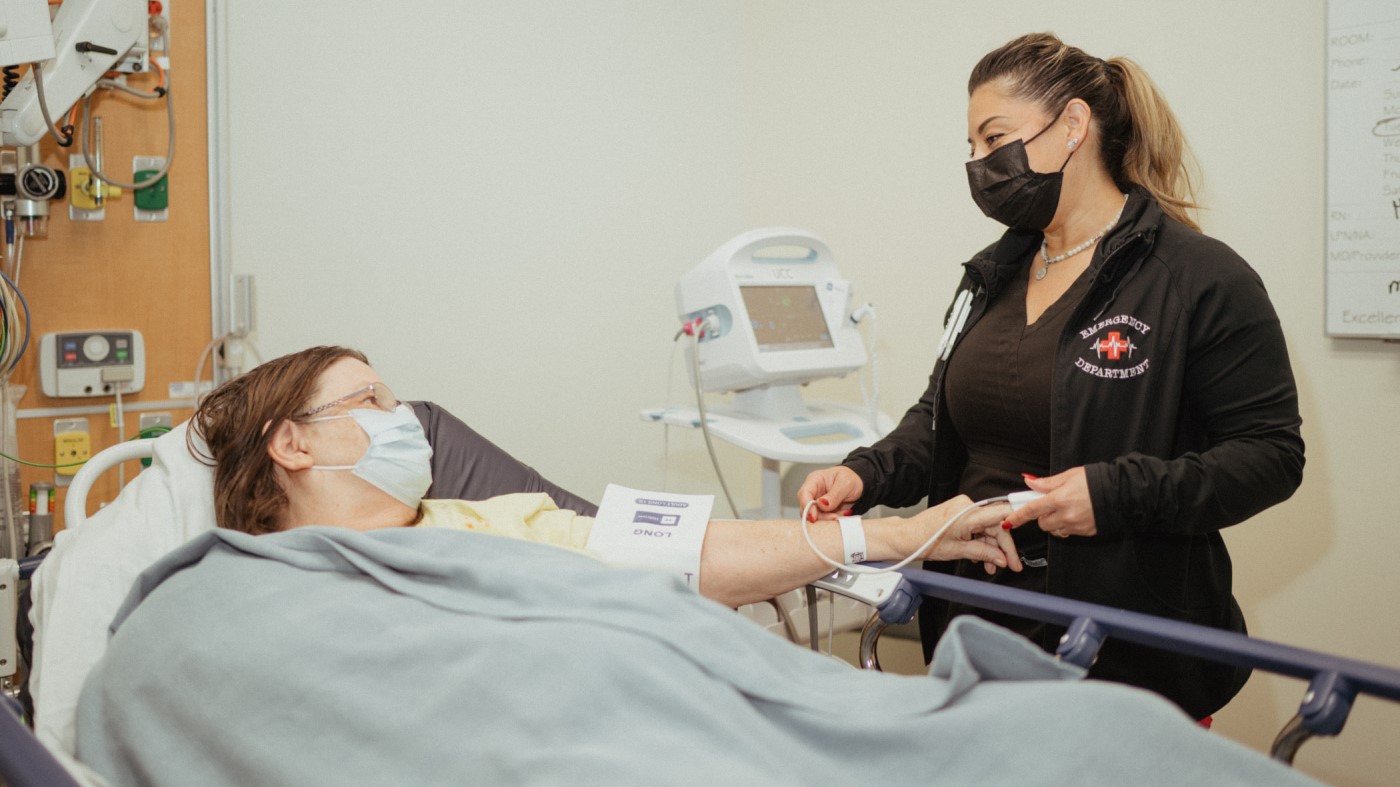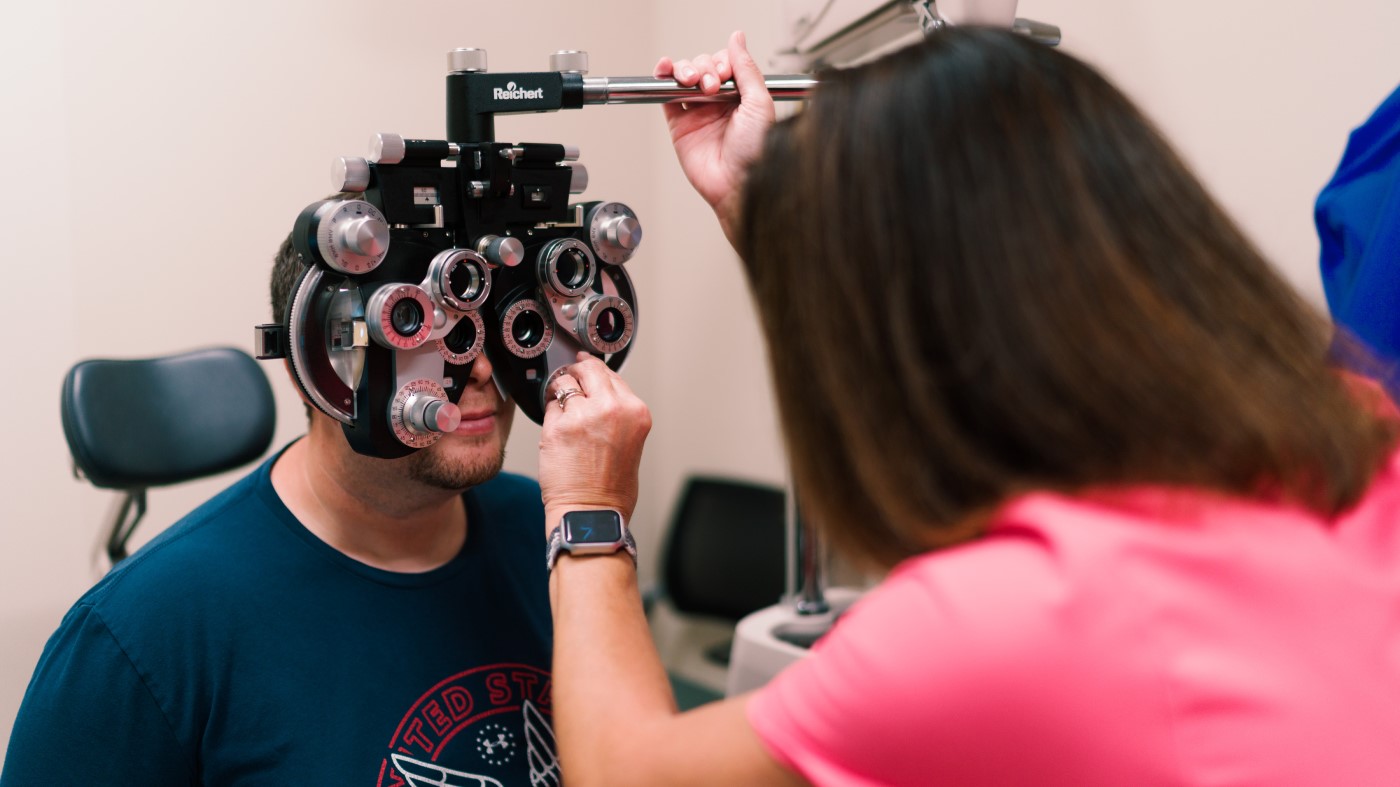Each and every day, we welcome Veterans, their families and caregivers into our more than 1,300 facilities, where our employees work hand-in-hand to provide the benefits our former service members have earned with their selfless duty.
VA is the largest integrated health care system in the United States, offering over 9 million Veterans care and support. This year, the more than 370,000 members of our team answered the call to serve those who have served each day, offering their hands in healing and friendship to those who come to us for care.
Embracing diversity
To better care for the increasingly diverse population of Veterans in the United States, we embrace the varied perspectives of our employees. Diversity in our personnel helps bridge the gap in health care disparities, an approach that has been adopted at the very top of our organization.
“To ensure a welcoming environment for Veterans, we must foster fair and inclusive VA workplaces where the experiences and perspectives of our diverse employees are valued,” said VA Secretary Denis McDonough. “The success of our mission depends on everyone being able to contribute their expertise, experience, talents, ideas and perspectives.”
In short, the more diverse our workforce, the greater success we’ll share.
Embracing education
VA is one of the nation’s largest providers of graduate medical education. About 70% of all U.S. physicians have received at least some of their training at VA health care facilities, and VA has partnerships with over 1,400 institutions throughout the country.
In fact, VA-partnered training programs exist in every state. Across 7,000 training programs, VA provides training for about 113,000 trainees annually, so to say that that we have embraced education is an understatement.
By supporting education at all levels and offering numerous opportunities to assist students and trainees with their student debt, we know that the hands caring for our Veterans belong to the best trained and most educated, which is exactly what they deserve.
Embracing innovation
VA is also a major contributor to medical and scientific research.
Our doctors have been at the forefront of groundbreaking research for decades, and thanks to collaborations with universities, federal agencies and nonprofits like those mentioned above, we build a broader academic and clinical community impacting the health of Veterans in meaningful ways.
“It’s satisfying to be able to continue to work on problems involving Veterans that I saw beginning to develop while they were on active duty, or in some cases may have been a result of their active-duty experience,” explained Dr. Stephen Plymate, an endocrinologist at the VA Puget Sound Health Care System in Seattle and a world leader in prostate cancer research. “VA provides that opportunity.”
Work at VA
Join hands with us and embrace a career serving those who have served.
- WATCH our healing hands in action.
- EXPLORE our academic partnerships.
- READ about the innovators and trailblazerson our team.
- FIND the opportunity to share your talents at VAcareers.va.gov.
Topics in this story
Link Disclaimer
This page includes links to other websites outside our control and jurisdiction. VA is not responsible for the privacy practices or the content of non-VA Web sites. We encourage you to review the privacy policy or terms and conditions of those sites to fully understand what information is collected and how it is used.
More Stories
We offer some quick and easy steps to show you how to format a cover letter, and what information to include.
The eye care provided by ophthalmologists can make all the difference to our Veteran patients.
Whether it’s access to the great outdoors or a calmer pace in your everyday life, you can find it in rural VA communities around the country.






This story is just one big lie. There is no respect or caring at the VA Hospital I go to. Veterans are treated like lab rats. They are exploited so the staff and interns can get rich while Veterans go homeless and suicide rates go up.
Edward A. Bassett- I am 74 years old & was in Vietnam I was a member of the,
USMC in 1969 to 1970 when I was exposed to Agent Orange.
As I remember there were several instances that the Jungle was sprayed with Agent Orange Insecticide while I was in Vietnam. There were time whe we would come
in from the Jungle (bush) covered with moisture from the spraying of this Insecticide while we were there. Due to a large foliage and many insects the Agent Orange was frequently used by spraying application. There were times when we were just Exposed by vapors being blown into us and other times we were directly sprayed by this application.
Once I started to get upset stomach or heart palpitations I went to the doctor to check for Hypertension. It was several years later that I developed some very big pustule sores on my arms and legs. I want to the Doctor at the Asian Hospital, Dra. Isabel Duavit. She performed some tests and after her findings, she said that I had either Limphthnoid Cancer, Lupus, or Bone Marrow Cancer. If all three are eliminated ( she had a team of 5 doctors she consulted with) then it is a chronic disease called SARCOIDOSIS.
SARCOIDOSIS can only be arrested and made dormant in the human body because it can become active again if the Immune System becomes weak end.
If & when this happens the SARCOIDOSIS is known to attack the organs I the body. It is often mistaken for Tuberculosis (TB) because when it attacks the lung’s
it can cause a shortness of breath and even water in the lung’s much like Polio. My Haert was attacked and it caused Hypertension, enlarged heart, & an irregular
heartbeat.
It did attack my Pancreas, my liver, & was eventually arrested by a continues dose of Prednisone (steroids). The prednisone was prescribed to me for several months (maybe even a couple of years) and when the SARCOIDOSIS was arrested I was slowly weaned off of the steroids. I have had a few of these attacks where the SARCOIDOSIS was activated & caused different medical issues
Hypertension
Kidney problems
Enlarged Heart
Shallow breathing
Weakness & hard to climb stairs ro steep places
Staphylococcus sores (large pustule sores that had to be lanced)
Liver issues
Weakness
Headaches
Poor vision
Insomnia
Dizziness
Vomiting
Most recently the effect is heart issues
Kidney issues
Sometimes swallow legs and edema
Shallow breathing when walking any distance.
Must use wheelchair or walker
At home must use Kane.
To the Best of my remembrance these are some of the Exposures to Agent Orange and by the Doctors Opinions the SARCOIDOSIS can most definitely be caused by being Exposed to Agent Orange. When I first addressed this t the Veterans Affairs when I filed for Agent Orange Exposure I was rates or assessed to be 100% disabled for my PTSD & disabled thumb. I contend that in addition to these 100% disability concerns that I am also entitled to treatment for all of these other medical issues.
I have found at least one Veterans Claim for SARCOISOSIS generated by a soldiers exposure to Agent Orange & approved by the VA. This at least sets a precedence that my prvate doctors, the VES Doctor & the VA doctors (& medical staff) agree that SARCOIDOSIS can be attributed to being Exposed to Agent Orange.
[Editor: Do NOT publish your sensitive information on the internet. I have removed it from this comment.]